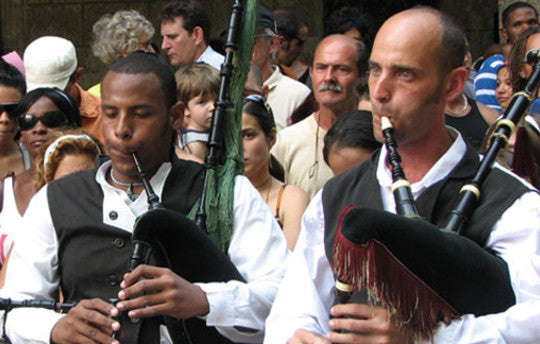Your Cart is Empty

Irish-American musicians hoping to play at the Second Annual Celtic Festival in Havana have been denied permission to travel by the USA government. The Obama administration has come under criticism from Irish-American news networks.
Celtfest 2011 is scheduled to take place over eleven days from the 15th April to the 26th April. The festival will take place in Old Havana, a UNESCO heritage site. The event was founded by Irish piper, Kilian Kennedy who designed the project after noticing Celtic retentions and musical practices on a holiday to Cuba. The 2011 festival is receiving support from Culture Ireland, the state agency for the promotion of Irish arts worldwide.
After two applications for a license that would allow musicians from the USA to travel to Cuba for the festival, the Obama administration cited that the project was deemed, ‘beyond the scope of what was authorized’. John McAuliff has conceded that his first application was turned down due to the provision of insufficient detail as required by government guidelines. McAuliff says he quickly supplied the missing information only to be told that the license had been refused again. America’s current Office for the Control of Foreign Assets has come under criticism for failing to revise the applicable government guidelines which were set out by the Bush administration back in 2004. Critics have also expressed concern that the Obama administration may be acting under pressure from resolutely anti-Castro campaigners. The move also seems to be in direct contrast to President Obama’s recent and well-publicized moves to open the door to ‘purposeful travel’. As of Jaunary 14th 2011, new regulations were published concerning American travel restrictions to Cuba. University students and members of religious organisations do not require a licence to travel to Cuba. Yet musicians and artists must still submit an application in order to visit the country.
Celtic music probably first arrived in Cuba in the late 15th century. Spanish colonial settlers sailed to Cuba in order to stake their claim on the Caribbean island country. The music of the gaita (Spanish bagpipes) and fiddles they brought with them was absorbed into Spanish-Cuban culture. The instruments and folk tunes were mixed, meshed and melded together with more popularly familiar influences of African, Latin and Caribbean music. A strong thread of Celtic influence can still be heard in some Cuban musical practices today. In Havana, two key societies where Celtic music survives and is fostered today, are the Agrupación Artística Gallega de La Habana and the Centro Asturiano de La Habana. Celtfest 2011 will now feature musicians solely from Ireland, Canada and Cuba. The program includes scheduled concerts, street parades and a series of organised Seisiúns (improvised musical gatherings).